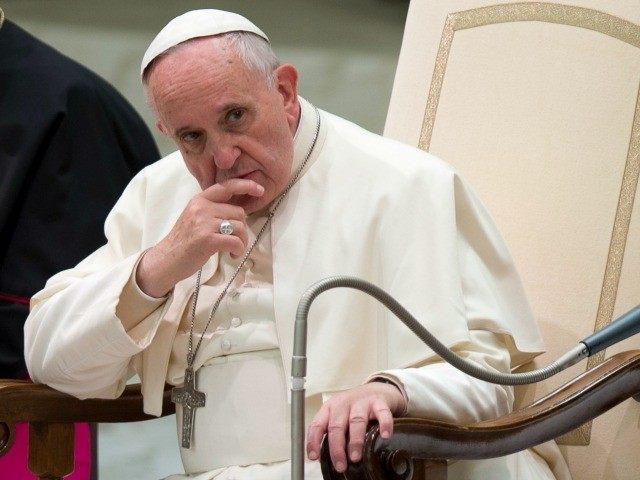
On Wednesday, President Barack Obama announced that the United States would be changing its policy toward Cuba, opening a Havana embassy and expanding travel. “Through these changes, we intend to create more opportunities for the American and Cuban people and begin a new chapter among the nations of the Americas,” President Obama explained.
The president negotiated the deal between the United States and Cuba over the course of 18 months. Pope Francis apparently initiated the negotiations himself. The Vatican released the following statement:
[T]he Holy Father wishes to express his warm congratulations for the historic decision taken by the governments of the United States of America and Cuba to establish diplomatic relations, with the aim of overcoming, in the interest of the citizens of both countries, the difficulties which have marked their recent history.
Raul Castro thanked Pope Francis personally for the deal.
Pope Francis’ casual embrace of a communist regime contrasts sharply with the approach of Pope John Paul II and Pope Benedict. Pope John Paul II’s visit to Poland in 1979 famously helped launch the solidarity movement that led to the collapse of communism in the nation.
When Pope John Paul II visited Cuba in 1998, he blasted the Castro regime by routinely using the language of freedom, and implicitly criticizing the Castros:
The Church in Cuba has always proclaimed Jesus Christ, even if at times she has had a scarcity of priests and has had to do so in difficult circumstances. I wish to express my admiration for so many of the Cuban faithful for their fidelity to Christ, to the Church and to the Pope, as also for the respect they have shown for the more genuine religious traditions learned from their elders, and for the courage and persevering spirit of commitment demonstrated in the midst of their sufferings and ardent hopes.
Pope Francis, then an assistant archbishop, apparently wrote a book about the visit, which he joined. The tract, titled Dialogues Between John Paul II and Fidel Castro, slammed “the spirit that has driven capitalism – using capital to oppress and subject people.”
Pope Benedict visited Cuba in 2012 and slammed the American embargo against Cuba, but also stated in Havana’s Revolution Square:
The truth is a desire of the human person, the search for which always supposes the exercise of authentic freedom… [some] wrongly interpret this search for the truth, leading them to irrationality and fanaticism; they close themselves in ‘their truth,’ and try to impose it on others.
At the time, human rights activists criticized Benedict for not meeting with dissidents.
Francis has gone further than both of his predecessors. He didn’t merely criticize the embargo – he attempted to broker an end to it with explicitly political maneuvering. According to his biographer, Austen Ivereigh, Francis “saw the paralysis that resulted from the embargo, which had a deeply damaging impact on Cuban politics, psyche and economics.”
And unlike both John Paul II and Benedict, Francis’ critique of communism has been tepid at best. In October, Francis complained that “land, housing and work are increasingly unavailable to the majority of the world’s population,” and warned, “If I talk about this, some will think that the Pope is a communist.” Instead, Francis explained, “love for the poor is at the center of the Gospel…it’s the social doctrine of the church.”
